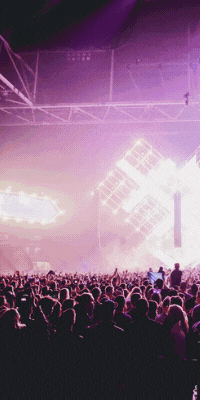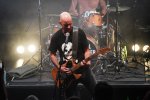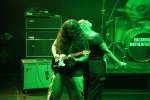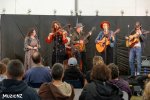Rei - Interview: Rei

What drives you to keep on going in the music industry?
The number one drive for me is the fact that I enjoy making music. I have fun when I create and make something out of nothing. I just want the freedom to be able to create as much as possible. To do that, I need to make a living from my music. And I’m getting there. Slowly but surely.
I notice you use marketing effectively. Do you have any advise for indie artists when it comes to marketing their music?
Decide on what type of artist you want to be online. The music/creative side is one thing but deciding on what you want your image to be is important as too. It could just be you, the honest you, in which case you wouldn’t need to be very careful with social media marketing. You can just post whatever you want when you feel like it. Others may want to have a more crafted brand, which is when you’ve got to be careful about what you post. It all comes down to what you want to get out of music really. Self promotion is hard, but it’s not meant to be easy. Most of the richest people in the world are self promoters. They’re people who have learnt Sales techniques and learned how to present themselves. Do what you’ve got to do really.
Who is Rei as a Hip-Hop artist?
The idea of rangatiratanga is central to both myself and my music. I want people to feel like chiefs when they listen to my music. I want them to know that they can be chiefs of their own environments also. When I call myself a chief in my music, I’m only trying to be a chief of my own destiny. Most of my songwriting comes from this kaupapa, and the various struggles and victories that come my way as a young man chasing his goals. So yeah, my music is grounded in where I come from and my surroundings. I love music where you can listen to it, and identify where it’s from. That’s why I use Te Reo, kiwi slang and kiwi references in my music. I want people to know where it’s from. At the same time though, you want to keep that mass appeal.
When did you start and what inspired you to make music?
I started making music when I was 13, I picked up my mum or dad’s guitar and just started writing songs with the 3 chords I’d learnt. I wrote about 5 tracks, recorded them on a burnt CD and gave it to wh?nau as a Christmas present. After that I downloaded Mixcraft on my Mum’s computer and just started making beats and rapping. The freedom that creating allows inspires me to make music. I can literally write a song about whatever I want, whatever I’m thinking about. That’s dope.
How would you describe your music in one sentence?
CHIEF Sound.
Which one of your songs are you most proud of, and why?
I’m probably most proud of Mix at the moment. It’s my favorite from the album at least. It’s a real personal track, resonates with me big time every time I listen to it. Hope it helps other people out too. I also like the fact that it’s an acoustic song on the middle of a Hip-Hop album.
Do you produce your own beats or do you use any particular beat maker?
I produced the album myself. I’ve been making beats for about 10 years now, and have been rapping for just as long. I produce best when I’m in the comfort of my own home and there’s no pressures around me. If I’m producing at a studio, it feels like I’ve got to come up with something great then and there. At home though, I can feel free to make something stupid, knowing that no one will ever hear it if I don’t want them to. This album was produced at my home studio. It was mixed and mastered by Chris Chetland of Kog Studio. He’s an awesome engineer to work with and always takes the time to teach his clients various tricks and tips of the trade.
What's your favourite and least favourite thing about Hip-Hop culture?
My favorite thing about Hip-Hop is the fact that it is a music for change. It has always been a voice for the voiceless, for minorities, for people wanting to see change in the world. The thing I don’t like is the fact that people outside of Hip-Hop still have this negative perception about it, that’s all about money, drugs, sex etc. That perception is wrong, but it still gets played out for some reason.
Tell us about your latest single and music video? Deep is the latest single from the album. The song is all about a pillow talk between lovers, where the girl wants to go deep emotionally, but her partner is just looking for a physical connection. We thought it would be cool to take this concept literally and shoot the whole thing underwater, so we did that. It was pretty challenging, but I’m happy with what we ended up with.
What advice would you like to give to other aspiring rappers/producers? ‘I tell em all chief in your day to day, you can really get it if you want it’. That’s a line from one of the off cuts of the album and I believe it. Keep backing yourself 100%, be the chief of your own future, and you’ll get to where you want to be.
What can we expect to see from you over the next year? Few more videos, another album, lots of shows, some shows overseas, more collaborations. Good times ahead.
About Rei

If Rei is an example of upcoming Kiwi artists, the future looks bright. From creating music the last 10 years to present his multi genre sound, Rei is definitely on the cutting edge, and is influenced by our global music community. Mostly by the UK House/Garage style, by Hip hop from major US rappers but, his album has the extra elements of Maori language, haka and kiwi slang, making the sum of A Place to Stand a smoothly produced audio experience. It also sounds BIG in a stadium or club setting.
Already releasing a number of tracks from this album, A Place To Stand includes beauties like Mix an electro acoustic ballad (with Rei on guitar), a lot of club bangers such as Deep and a few not-so- cheesy love songs like Basics.
Visit the muzic.net.nz Profile for Rei
Releases
Other Interviews By jck2
 Interview with Lakius
Interview with Lakius
05 Jun 2019 // by jck2
Lakius is an Auckland-based 3-piece Metal band. Formed from the ashes of Broken Season, Lakius solidified their line-up in late 2018.
Read More...
29 Jan 2018 // by jck2
Die Gruwel are a newly formed Horror/Slasher punk band from Auckland. I’ve been thrashing their first release called Creep In A Jeep so I thought I’d talk to the lads and find out what makes them tick.
Read More...
09 Mar 2017 // by jck2
Alpha AKA Angus Grace is a Hip-Hop artist I've known from the Auckland Hip-Hop scene for a few years now. He's the kinda artist that works hard and takes every opportunity to perform and spread that goodness.
Read More...
25 Sep 2015 // by jck2
Who is Reubz as a Hip-Hop artist? I use Hip-Hop as an art of pure expression.
Read More...
16 Jul 2015 // by jck2
Who is Bobby as a Hip-hop artist? As a Hip-Hop artist I am someone with a different outlook on music.
Read More...
02 Jun 2015 // by jck2
Today on ‘The Rap It Up’ blog I interview Rahul Mukund one of New Zealand’s most notorious battle MC’s. Rahul aka XCeeD is a kind of "super villain", if you will, of the 1 outs battle league.
Read More...
25 May 2015 // by jck2
I've been following Ryan Boot aka Ryan HC for a couple of years now and have heard his songs and videos go from strength to strength. So I hit him up for an interview to share him with the world.
Read More...
25 May 2015 // by jck2
Who and what is Saru G? I am a political/conscious rap artist.
Read More...
Most Viewed Artists
Latest Galleries
NZ Top 10 Singles
- APT.
ROSÉ And Bruno Mars - DIE WITH A SMILE
Lady Gaga And Bruno Mars - BIRDS OF A FEATHER
Billie Eilish - TASTE
Sabrina Carpenter - I LOVE YOU, I'M SORRY
Gracie Abrams - ESPRESSO
Sabrina Carpenter - SAILOR SONG
Gigi Perez - LOSE CONTROL
Teddy Swims - A BAR SONG (TIPSY)
Shaboozey - GOOD LUCK, BABE!
Chappell Roan














 Report A Problem
Report A Problem

